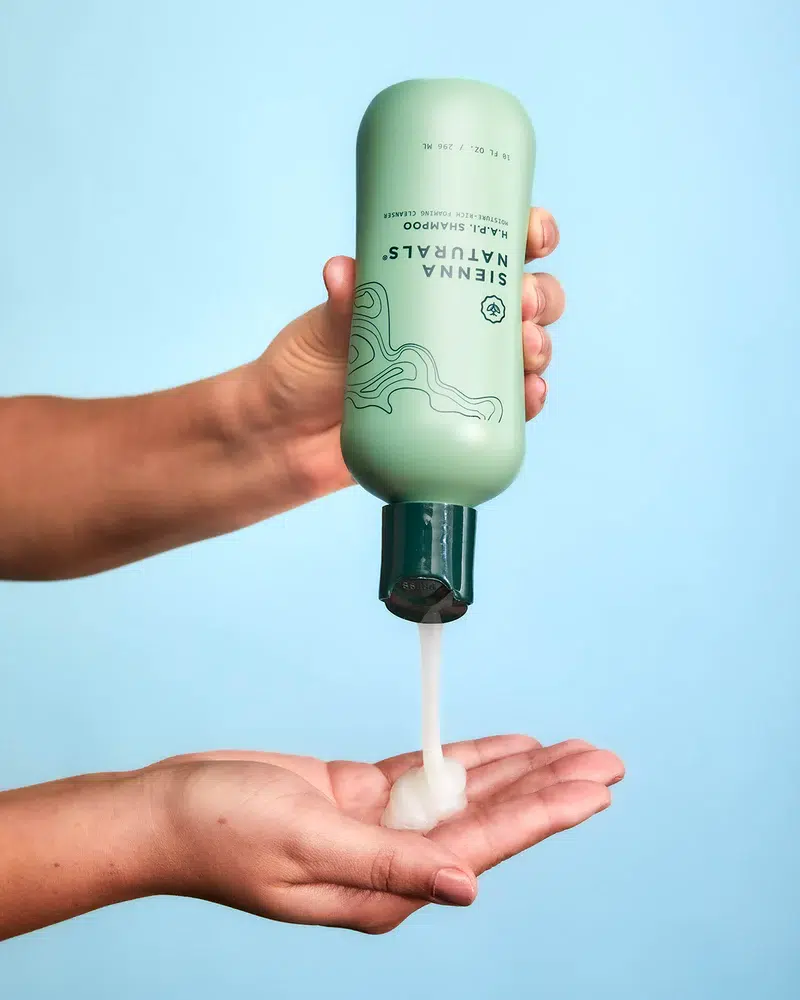
Why Black Thought Leaders Are Advocating For Wellbeing
“When we know better, we do better,” says Tashon Thompson, co-founder of TRYWELL, a brand making supplements that address nutritional gaps commonly faced in the Black community. Most people don’t know just how dire the state of Black health is in America. “In our country there’s a longstanding cultural issue with African Americans and the health system. From the rising Black maternal mortality rates to lack of access to proper healthcare in lower economic communities, it’s always been an uphill battle.”
“Most people don’t know just how dire the state of Black health is in America.”
The history of justified skepticism between the Black community and the American medical system is long and storied. It’s built into the American mythos. Were you, as a kid, regaled with stories about George Washington’s wooden teeth? The reality is much more gruesome. Our founding father’s teeth were pried out of the mouths of enslaved people.
According to the Equal Justice Initiative: “During and after enslavement, physicians often denied Black people basic dignity and personhood through mistreatment that reflected the prevailing and dehumanizing myth that Black people were less sensitive to pain than white people.” Naturally, this is where the “strong Black woman” trope was born.
We also can’t forget Henrietta Lacks, a Black woman whose cells were taken from her body in 1951 without her knowledge and formed the basis of many innovations in health. They “were vital for developing the polio vaccine and uncovering secrets of cancer, viruses and radiation effects. These cells led to improvements in in vitro fertilization, cloning, and gene mapping.”
Lacks was not the only unwitting subject to medical experimentation. During the Tuskegee Experiments, Black Americans were lied to and kept from potentially life-saving treatments by the US Public Health Service. And the Eugenics Movement led to forced and often unwitting sterilization of Black women until as late as the 1970s.
But this is history, we think. It’s in the past. Yet, current statistics show that, compared to our white counterparts, African Americans are generally at higher risk for heart diseases, stroke, cancer, asthma, influenza and pneumonia, diabetes, and HIV/AIDS, according to the Office of Minority Health. Black people are even more at risk for long COVID.
“But this is history, we think. It’s in the past.”
Prominent figures have made public pleas for the US to prioritize Black health for years. Civil Rights Leader Martin Luther King Jr. spoke about the need for investment in Black health. At a press conference for the Medical Committee for Human Rights in Chicago in 1965, he said: “Of all the forms of inequality, injustice in health is the most shocking and the most inhuman because it often results in physical death.”
In a 2016 article published in the American Journal of Public Health, “Beyond Berets: The Black Panthers as Health Activists,” Dr. Mary T. Bassett wrote about the Black Panther Party’s contributions to health advocacy, saying they “popularized a set of beliefs that identified health as a social justice issue for Blacks and influenced public health to this day. Its militancy, blending science with community engagement, resonates today under the banner of #BlackLivesMatter.” She believes that educating communities holistically about their health is crucial to social justice efforts today. “That health is a right, not a privilege, remains true. It is a proud legacy, one built by many, still unachieved, and still worth fighting for today.”
“That health is a right, not a privilege, remains true. It is a proud legacy, one built by many, still unachieved, and still worth fighting for today.”
– Dr. Mary T. Bassett
If we, as a culture, were expecting time to fix the wounds (literally), these startling statistics are proof that it won’t. It makes sense — there has been no major government investment in closing the education and access gaps to quality healthcare, or in systematically addressing the doctoral discrimination that further denigrated the health of individuals and communities. (Except maybe Michelle Obama’s Let’s Move campaign.)
Even Thompson, who considered himself pretty healthy, had no idea about the extent of health disparities until co-founding TRYWELL with his mother.
“While looking on the market I realized there were no brands that spoke to me. No brands that represented the Black experience but also educated us on the nutrition disparities and how to combat them. And then TRYWELL was born.”
And it’s not just the Thompsons. A new cohort of Black businesses, brands, and creators are educating and providing resources that actively center the Black experience.
The link between education and prevention
While we shouldn’t count on individuals and businesses to fix institutionalized issues (our systems should do that!), their focus on education and awareness alongside action are starting long-overdue conversations that might lead to widespread change.
According to renowned celebrity trainer Joe Holder — GQ contributor, Nike Master Trainer, and Founder of The Ocho System™, Plant Based Gang, and Exercise Snacks — health and wellness are revolutionary acts.
“As cultural mavens, stakeholders, and decision-makers, we can change the way people think about their personal health and the greater communal implications,” he wrote on his Medium. He urges people to resist the wellness industry’s focus on “buying” health through gadgets and fads, and instead invest in our bodies and communities starting with the most basic tenets: A good diet, a little bit of exercise.
“Black health, from physical health to emotional wellness, is finally being talked about and defined more broadly to include all the aspects of health that impact our lives.”
Yet, Holder has hope that the industry is getting better. He told The Denizen: “Some good things about the industry is the fact that it is finally focusing on the importance of recovery, and it is taking a more holistic approach. It isn’t so much a ‘one size fits all’ dynamic anymore. And there’s been an increase in education.”
Black health, from physical health to emotional wellness, is finally being talked about and defined more broadly to include all the aspects of health that impact our lives. According to Pfizer, in 2017, 89% of African Americans had health care coverage compared to 93% of white Americans. By placing a greater emphasis on proactive care, including education and regular check-ups, many of the health issues facing Black Americans could be prevented.
“The best way forward is listening and helping when and where we can,” says Thompson. “My mother and I believe finding new ways to show beautiful representations of the African American experience is the door opener to teaching not only our community but others about the disparities in nutrition and healthcare and how we can all work together to chip away at the problem one day at a time.”
Support Black-led efforts to create a better future
We can all support community-led efforts, creators, and brands that devote their energy to educating and spreading awareness about the importance of preventative care and holistic healthcare in the Black community. Below I’ve compiled a variety of resources that are wonderful sources for further education and many act as platforms to continue the conversation on black health.
Follow:
Joe Holder — Heath and Wellness Coach
BLKHLTH — Educational platform for health professionals and Black communities to learn about inequity and brainstorm solutions (they also provide a comprehensive list of resources)
Hike Clerb — A decolonial BIWOC-led outdoor collective promoting healing through community and nature
USAL Project — Black-founded community providing experiences & goods for the modern outdoor enthusiast.
Trywell — Addressing nutritional gaps through supplements and education
Sad Girls Club — Creating a mental health community for Gen Z and millennial women who have mental illness, along with reducing stigma and sharing information about mental health services
Black Girl in OM — Working towards a world where womxn of color are liberated, empowered & seen
Kim Rose, The Blood Sugar Nutritionist — Dietitian and Diabetes Educator on blood sugar management and nutrition
Shyla Cadogan — Dietician focusing on accessible nutrition optimization and debunking common myths
Dr. Ade Osinubi — A documentary filmmaker, photographer, and an Emergency Medicine Resident Physician sharing the stories of minority populations that often go untold
Dr. Kameelah Phillips — OBGYN educating and empowering women at every stage of life
Dive In Well — Redefining the meaning of true wellness by centering the wellbeing of marginalized communities in a predominantly white wellness industry
Too Collective — Podcast and self-care community for every part of your wellness community
Watch:
“Black Motherhood Through The Lens” — Sheds light on the experiences that Black Women face within reproductive healthcare to diversify media representation
“Unnatural Causes” Documentary Series — Broad look at health inequalities in the US
“Aftershock” — Study on the failures of the system on Black maternal health in America
“The Invisible Vegan” — Explores the state of nutrition in the African American community
Read:
“Medicalizing Blackness: Making Racial Difference in the Atlantic World, 1780-1840” — Rana A. Hogarth
“Legacy: A Black Physician Reckons with Racism in Medicine” — Uché Blackstock
“Black Fatigue: How Racism Erodes the Mind, Body, and Spirit” — Mary-Frances Winters
“Just Medicine: A Cure for Racial Inequality in American Health Care” — Dayna Matthew
“Too Heavy a Yoke: Black Women and the Burden of Strength” — Chanequa Walker-Barnes
Support:
Plantation Park Heights Urban Farm (PPHUF) — Providing access to sustainable education and preventative healthcare focusing on food security and holistic wellness.
Black Emotional And Mental Health Collective (BEAM) — Removing barriers preventing Black people from getting mental health care through education, advocacy, and arts
Black Women’s Health Imperative — Supporting holistic health and healing for Black women through policy, advocacy, education, research and leadership development
The Loveland Foundation — Founded by writer, lecturer, and activist Rachel Elizabeth Cargle, the Loveland Foundation works to make mental health care more accessible for Black women and girls
Ourselves Black — An online magazine providing information on promoting mental health and developing positive coping mechanisms
The United Way Worldwide COVID-19 Community Response & Recovery Fund — Supporting the most vulnerable communities affected by COVID-19 to provide critical financial and social service support during this global crisis
African American Policy Forum — Home to the SayHerName Campaign and an innovative think tank that connects academics, activists, and policy-makers
Resources:
Breastfeeding Promotion For Black Women
BLKHLTH Mental Health Resources For Black People
Langa Chinyoka is a Contributing Editor at The Good Trade. She is a writer and strategist based in Los Angeles.




